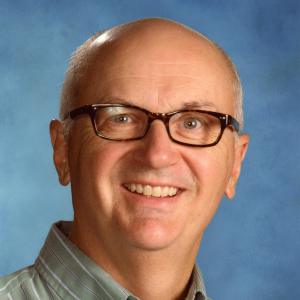Former Swift River Academy reopening as drug treatment center
| Published: 09-29-2016 4:22 AM |
CUMMINGTON — By the middle of next month, the property that housed Swift River Academy will once again help people find their way.
The former school for troubled youths, whose acreage extends into Plainfield, was bought and renovated by a Tennessee company, Addiction Campuses. The 12 buildings and nearly 600 acres will reopen as a drug and alcohol rehabilitation center, called Swift River.
The property is nestled within Hilltown wilderness, and company executives said that wasn’t an accident.
“We want to make a lot of use of the grounds here,” Chief Executive Officer Mark Lancet said during an opening ceremony for the community on Wednesday.
Company officials said the facility will feature wilderness therapy, adventure therapy and equine and canine therapy to help addicts kick their habits and form healthy connections.
Lancet said he has learned in his 30 years working in treatment that it’s easier to get people sober when they end their days fulfilled and fatigued.
“I really feel that treatment is a participatory experience, which means you get out what you put in,” he said.
The event Wednesday evening drew dozens to the grounds. Neighbors, including Select Board member Monica Vandoloski, said they are happy to see the company there, employing local residents.
Article continues after...
Yesterday's Most Read Articles
 Holyoke man finds bear paw in his yard
Holyoke man finds bear paw in his yard
 Developer lands $400K loan for affordable housing project in Easthampton mill district
Developer lands $400K loan for affordable housing project in Easthampton mill district
 Petition to block auto dealership on King Street falters in Northampton
Petition to block auto dealership on King Street falters in Northampton
 Fearful Belchertown residents blame stray bullets on nearby gun club, appeal to town for help
Fearful Belchertown residents blame stray bullets on nearby gun club, appeal to town for help
 South Hadley man fatally shot in attempted robbery
South Hadley man fatally shot in attempted robbery
 First look at how little Amherst’s police alternative being used called troubling
First look at how little Amherst’s police alternative being used called troubling
“It’s very beneficial to the community,” Vandoloski said. “They’ve been very receptive to us and tonight is an example of that.”
Donna Forgea, Cummington’s town moderator and a former employee of the academy, said she’s happy to see the place up and running.
“I’m glad it’s going to be used again,” she said, adding she was concerned when it sat idle for three years. “It’s a great facility and a lot of land.”
To start, the center can treat up to 46 people at a time, though company officials said they will seek additional licensing as they grow to house up to 120 people in recovery.
Brent Clements, CEO of Addiction Campuses, said the company chose to open a fourth location in the Northeast because of the enduring heroin epidemic in the region.
“There’s a public health crisis here,” he said, adding that people in New England were flocking to the company’s online resources. “We felt a calling to come here and help these folks.”
Clements said the company’s model, which involves assessing and placing people in customized treatment programs, has seen success at its facilities in Tennessee, Texas and Mississippi.
“We’re not a one-size-fits-all treatment facility,” he said.
The standard program at the facility, he said, is 45 days. Beyond that, he said there’s a one-year follow-up plan, during which outreach coordinators work with clients’ physicians, families and others in their extended network.
“We’re really trying to get people connected with recovery,” he said. “We’ve all got to come together to meet this crisis.”
Andrew McKenna, market director for the company, said even front-desk staffers are trained in dialectical behavior therapy, a treatment technique that teaches clients to better manage their thoughts and emotions. He said other “cookie-cutter” treatment programs have a revolving door of addicts funneling in and out of them because they don’t work, whereas theirs is different.
“We meet the people where they are,” said McKenna, a recovering addict himself who said he robbed several banks to fuel his addiction to opiates. “They’re vested in their own treatment.”
Brian Sullivan, a spokesman for Addiction Campuses, said the company has so far employed 56 local people and is still hiring. Tuition, he said, will vary from client to client. He said the program costs about $22,000 at the high end, though he emphasized that the company never turns anyone away and offers scholarships that can reduce the price tag substantially.
“I don’t want anyone to see a number and say, ‘I need help and can’t afford it,’ because we have a team of people who can get them in for free,” Sullivan said.
Michael Knapik, director of Gov. Charlie Baker’s western Massachusetts regional office, said he’s excited to see new treatment strategies coming to Massachusetts.
“It’s a very different model,” Knapik said. “The more options available, the better off the citizens of the commonwealth will be.”
Amanda Drane can be contacted at adrane@gazettenet.com.

 A Look Back: April 20
A Look Back: April 20 New HCC president reflects on journey: Timmons sees his own struggles and arc in students’ paths
New HCC president reflects on journey: Timmons sees his own struggles and arc in students’ paths Historic murals restored at Victory Theatre in Holyoke
Historic murals restored at Victory Theatre in Holyoke
